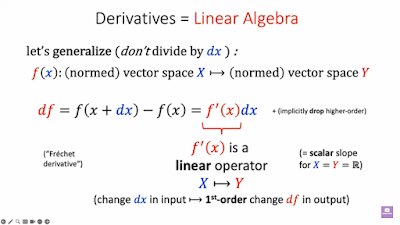David Turner Obituary by Sarah Nicholas Fri 24 Nov 2023
This was in The Guardian: David Turner obituary, only eight days after I posted David Turner Talking About Sixty Years of Functional Programming History: This talk was given in London in 2017:
See Turner, D. A. "Some History of Functional Programming Languages" also John Hughes - Why Functional Programming Matters and David MacQueen's talk at ICFP 2015 in Numberphile - Sophie Maclean on the Catalan Numbers.
At 10:30 This whole discussion abut combinator reduction is especially interesting. I didn't know Arthur Norman had tried building hardware for combinator machines. I'll look that up: maybe start here A.C. Norman Faster combinator reduction using stock hardware in LFP '88: Proceedings of the 1988 ACM conference on LISP and functional programming.
At 26:25 on the ISWIM virtual machine implemented in the PAL compacting garbage collector?! This work Reynolds and others did was at MIT in Masecheusetts and Argonne National Laboratory Illinois. Did someone get upset about ownership of ideas, I wonder? I'm only asking, because the timing of deaths seems a bit suspicious to me.
At 28:57 What is this about a five-line package on the MIT PAL tape for parsing an arbitrary BNF Grammar? and at 30:07 he and he and Tony Davey produced SASL in a weekend at St Andrews.See Matt Godbolt and Ben Rady Talking About Data Compression.
At 32:43 on the efficiency of pattern-matching notation:
See also My Story for more on five line parsers for arbitrary BNFs and Tom Ridge's work on parsing and Koenig's Lemma.
I saw Larry Paulson when I went back to the Computer Lab in April last year. I said "They put me in jail!" and he wrung his hands like a tormented character in one of Shakespeare's plays. Poor guy. Sorry, Larry, but being in jail in the US is a shit-show!
My implementations in Standard ML of Tom Ridge's parser monads are here: https://github.com/IanANGrant/metaprogramming.
Subscribe to Erlang Solutions.
See A Trip to Richemonde, and The Man Who Knew Too Much
In particular, note the bit at 26:21 anout techniques used to indirectly "get at people". These are are a bit like a sawn-off shotgun: they spray crap all over the place, and social media, especially crap like Facebook are great for that sort of thing. See Why Social Media is Dangerous and Irresponsible.
At 35:08 the story about US support for the IRA and the campaign against Bill Fuller. See Obituary: Bill Fuller published in the Guardian in September 2008:
Bill Fuller, who has died aged 91, was widely regarded as the man who first brought rock music to London's Camden Town. Fuller, who built an empire of entertainment venues and hotels across the world - including the Electric Ballroom in Camden Town and San Francisco's Fillmore West - was an innovative Irishman whose colourful presence impacted on 70 years of the music business. Aside from his venues, Fuller ran a management and promotions company whose list of clients included Joe Loss, Billie Holiday, Patsy Cline and Johnny Cash.
He was also instrumental in the rise of the Irish showband scene in the 1960s and was one of the few promoters who was able to get his bands into the then Mafia-stronghold of Las Vegas. "I love to take risks," he once said. "Life is a risk."
At 50:59 there's a nice story about launching an investigative journalism operation. All I get is The Guardian web site asking me to help fund them in 2024, and then asking me to log in to read that obituary about Bill Fuller.
So how about it Larry? Let's investigate these deaths of your family and friends before all the credible witnesses drop dead? See Larry's blog Machine Logic At the junction of computation, logic and mathematics in particular Russell's Paradox: Myth and Fact 31 Jan 2024.




Comments
Post a Comment